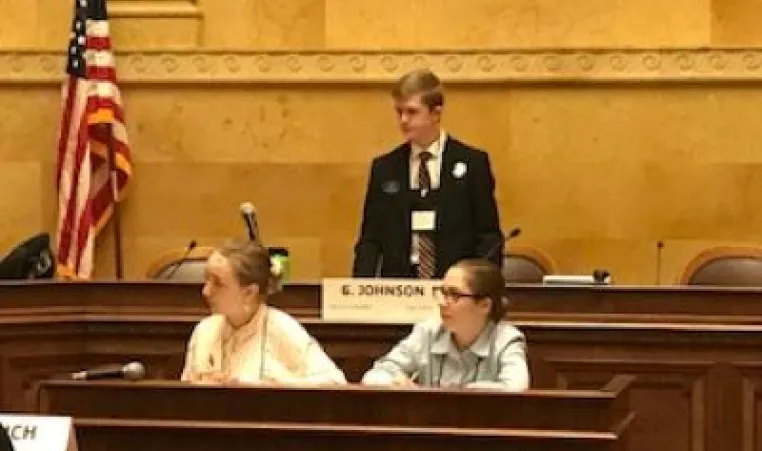
One of my all-time favorite quotes comes from Saint Catherine of Siena: “Be who God meant you to be and you will set the world on fire.”
This quote resonates with me on a daily basis and embodies the impact that today’s youth can make on the world around them. Many times we think they are too young to understand or they do not get the importance or significance of what is happening in the community around them. In fact, this is not true. Many youth face the same challenges we do as adults. They are well aware of what is happening in the world around them and the impact it is having on their lives.
In this day and age, youth leadership is very important and it is our job as adults to help today’s youth find their voice. Getting youth involved in different activities, clubs or events that are important to them is the first step in guiding and developing their leadership skills. Many times youth are looking for a program or project that is positive, impactful and a fun service type opportunity where they can take on small leadership roles. Youth who become involved in community activities at an early age develop a passion for volunteerism that will take them far into adulthood. As adults we need to take the time to talk to and listen to young people to discover what their passions are. The next step is to take that information and provide them opportunities to get involved. In the end it doesn’t necessarily need to be helping find a service project, it could be talking to them about problems they see every day or ideas for improvement. These interactions instill in them the art of communication while being respectful to others’ opinions. Through these conversations and opportunities, you will see their confidence grow over time. They realize that their opinions matter and can easily share them with their peers, which in turn helps them realize that they can make a difference and be part of the solution to any problem. All anyone wants -- youth or adult -- is to feel part of the solution, and communication plays a huge roll in making changes to the world around them.
In order to be a successful leader, one must have developed some self-leadership. This means that youth have developed confidence in themselves, independent thinking, decision-making skills, listening skills, learning to work as a team and analytical thinking. When working with youth, as adults we may not agree with the decisions they are making. Instead of telling them they are wrong, we have to mentor them. Adults can mentor youth by encouraging them to speak their mind and by asking them questions that make them reflect on their decisions. Some questions can be as simple as, “What do you see as your challenges?” “What do you see as being successful?” “What can you do differently for next time?” Being able to communicate with their peers -- their successes, challenges, things they can do differently -- in a positive and encouraging way instead of a negative voice makes a huge difference in regard to others. People who feel they are not being heard or that their opinions don’t matter become discouraged and will tend to withdraw themselves or find a different project to get involved in. These harder conversations about challenges and successes also teach youth how to handle constructive criticism in a positive manner, which is crucial skill they will all need later in life. As adult leaders, always leave youth leaders with something positive to reflect on, we want to encourage not discourage them from their leadership roles.
There are three key components to understanding and promoting youth leadership:
1. Communication
2. Analytical thinking
3. Positive involvement
All three of these components are necessary and must go hand in hand in order to have effective youth leadership. You can’t focus on just one component and expect that to progress to great leadership. Without the communication component, you will not have effective leadership, as others will not know what is going on. If it is not a positive experience, one will struggle to find others to follow or assist in any project. Without the analytical thinking skills, how will one make changes or see the potential for changes? By having these three components in place, you are setting up today’s youth for success.
By continually encouraging youth to let their voices be heard, giving them opportunities to communicate and sharing their passions with the world in a positive manner, I am positive we will be amazed to see where today’s youth will take us.
Written by: Jolene Gross. Jolene has been an employee of the YMCA of the Fox Cities since 2002. She is the YMCA of the Fox Cities/AASD Extended Day Learning Program Director and Youth in Government Director. She enjoys having the opportunity to work with children ranging from 5-18 years old. “It is amazing how inspirational they are and I am blessed to have the chance to work with these individuals on a daily basis.” Contact Jolene at jgross@ymcafoxcities.org.